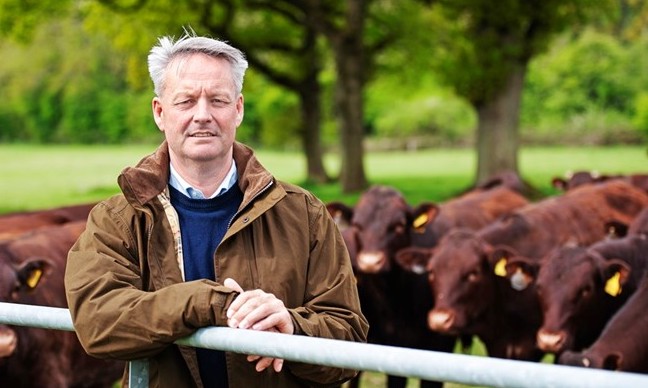Yorkshire Water plans £180m of improvements to cut storm overflow discharges
Drax pumps almost £38,000 into more than 20 good causes
Renewable energy company Drax has donated over £37,500 from its Community Fund to 26 local groups and causes near to Drax Power Station in North Yorkshire.
Jane Breach, Drax UK Community Manager, said: “Drax has a long tradition of giving back to the communities we operate in, and this year we have stepped up our community funding to allow us to support even more good causes and ensure our business has a positive impact on people, nature and the climate. “We are pleased to announce that in the first round of community funding this year we will be awarding close to £60,000 of grants to 40 different organisations in the UK which support STEM education and skills or work to improve the local community.” Of the total, £37,530 has been awarded to 26 different community-led projects local to Drax Power Station near Selby. This includes developing an outdoor space for volunteering and educational opportunities at St John’s Church in Goole, purchasing equipment to deliver a STEM programme for children at Carlton Playgroup, helping Kellingley Juniors Football Club to purchase sports kit and the Stillingfleet Community Group to deliver a village playground project. Jonny Patton, Operations Director at St John’s Church, said: “As the only green space in the centre of the town, St John’s churchyard has the potential to make a significant contribution to the lives of the people of Goole, and play a key role in the rejuvenation of the town centre. This donation from Drax will help us to progress plans for our project ‘Life and Hope Gardens’, which will be an inclusive and accessible space for volunteering, community-led projects and school activities as well as create opportunities to reduce social isolation and improve health and wellbeing.” Drax’s Community Fund donations are awarded once a quarter to local projects in the regions where Drax operates which fit into the following categories:- STEM education, skills development, and employability
- Improving green spaces in local communities
- Improving our communities
Private sector activity could be poised for a modest rebound, says CBI
Groundbreaking new conference responds to farming crime wave sweeping rural Britain
Connecting with the world: business completes web translations for a dozen companies
Property auctioneers merge with combined auctions
Two of the north’s largest property auction houses, North-West based Pugh and South Yorkshire based Mark Jenkinson, are combining their online property auction listings from this month.
Mark Jenkinson, which has been based in Sheffield for over 125 years, was acquired by Eddisons earlier this year, joining Pugh which was bought by Eddisons in 2016. Between them the two firms have sold a wide range of commercial, residential and land assets worth £94m in the last year.
Combining the lots of both auction houses, under the Pugh brand and as part of Eddisons, will provide a more extensive list of investment opportunities across the regions.
Pugh Managing Director Paul Thompson said: “This is an exciting development for our business and reinforces our strength and leading position in the northern property auction market. Combining the two very capable teams ensures we continue to deliver a high performing service to our selling and buying customers.”
Mark Jenkinson senior partner, Adrian Little, added: “Working with Pugh, as part of Eddisons, gives us a superb geographic reach, unrivalled market insight and a vast network of buyers and sellers.
“The personalised customer service our clients have always enjoyed will be backed by cutting-edge technology and strategic marketing support.”
Over £4m building improvements funding secured for Yorkshire schools
Property consultant Eddisons, which is headquartered in Leeds, has secured more than £20m of funding to improve buildings at schools across the UK, including more than £4m for Yorkshire schools, in the latest round of the Government’s Condition Improvement Fund (CIF).
Education sector specialist Eddisons has raised more than £200m in school funding over recent years and the latest round of secured funding for projects in Yorkshire includes £350,000 for the Yorkshire Collaborative Academies Trust to carry out fire safety and roofing works, and over £700,000 to fund a roofing project and asbestos removal for the Brooksbank School in Elland.
Ian Harrington, head of Eddisons specialist education team, said: “This is another year of fantastic results for both our clients and the team. However, the success also highlights once again the fact that education is one of the more poorly funded sectors, with 2,000 projects unsuccessful in their bids in this round of funding alone.
“We will continue to work with those schools and academies that were unsuccessful, to offer guidance on future bids, as well as offering advice on other funding opportunities that are available. With the total CIF pot remaining unchanged on last year, despite base rate inflation being at 11% and construction inflation nearer 30%, it was one the most fiercely competitive rounds of funding we’ve experienced.”
The CIF programme is an annual round of bidding under which academy schools and colleges can apply for funding for the upkeep and improvement of their buildings and to fund expansion projects for schools that have been rated good or outstanding by Ofsted. In total, the Department for Education received funding requests for over 3,000 projects this year, with 1,033 projects across 859 academies being allocated a share of the £456m.
Mr Harrington added: “The CIF bidding procedure is highly complex and Eddisons’ education team have built up huge knowledge and experience over the years to help deliver successful bids and projects that make a real difference to schools and to the people who study and work in them.
“Every year the process of submitting a successful CIF bid becomes ever more competitive and we are really pleased to say that we have maintained our position as a key adviser to the education sector, with an excellent success rate for our bids.”
The successful projects will all get underway shortly and will be project managed by Eddisons.
Positive signs for Yorkshire’s retail sector as Leeds and Sheffield emerge in UK’s top 10 growth cities
The Yorkshire region fares well in the retail sector with both Leeds and Sheffield ranked in the UK’s top 10 growth cities according to CBRE’s latest research report ‘Which City? Which Sector? Real Estate Prospects over the Next Decade’. Leeds is ranked fourth in the retail sector with Sheffield positioned eighth.
CBRE examined the growth prospects for 12 real estate sectors across the 50 largest regional towns and cities in the UK. Findings were informed by economic drivers (including GDP, employment and income growth), demographic trends and property market data such as supply pipeline, local universities and housing affordability. The top 10 performing cities and growth sectors were identified.
Ram Rasiah, senior director, CBRE said: “It’s great to see two Yorkshire cities in the top 10 list. Retail continues to adapt to changing consumer habits and repositioning the role of the store. Within this, the polarized performance of retail locations is becoming increasingly apparent. While small, local destinations continue to remain relevant through their convenience and regional schemes benefit from their critical mass, the performance of mid-sized locations has been more challenged.
“In contrast, larger locations deliver a greater catchment potential. And aligning these trends, population and expected population growth were among the metrics used in our analysis. Birmingham ranks strongest in this measure, followed by Leeds and Glasgow,” continued Rasiah.
Birmingham took the top spot for retail followed by Bristol and Manchester respectively.
Retail performance is not only driven by scale. CBRE’s research has shown that affluent cities see healthier property performance, have lower vacancy rates and experience higher rental and capital value growth. A review of average household incomes ranks Sheffield highly versus other locations. A comparison of cities highlights Bristol and Manchester with the strongest growth potential.
In addition, a critical driver of a retail location’s performance is the balance of supply and demand. Allowing for a shift of some spend online, CBRE estimates that the volume of retail floor space in the UK will need to decrease by 16% to reach average sales densities of 2015-2020. Ranking cities by floorspace per capita and a review of vacancy rate data, gives an indication of potential oversupply in locations. The majority of the top ten potential growth cities identified have a lower retail floor space per capita than the sample average, with Sheffield and Bristol in the strongest position.
Leeds ranked sixth in the office sector with Sheffield taking the eighth position for growth cities. Manchester, Bristol and Birmingham placed as the top three growth cities in this sector.
Alex Hailey, senior director in CBRE’s Office Agency team in Leeds, said: “It’s great to see both Leeds and Sheffield identified in the top 10 growth cities. The role of the office has changed over time to align with occupier requirements, as the way we use offices evolves. The movement from cellular offices to flexible and agile formats has reduced the average space requirements per employee and hybrid working is challenging historic working norms.
“Occupiers focusing on talent attraction and retention are considering a range of flexible, amenity-rich spaces to curate the optimum user experience. But in tandem with these trends, demand for office space ultimately continues to be driven by the wider economic environment. Economic and demographic factors are fundamental when identifying key growth markets for office real estate.
“The size of the talent pool is a key factor used in forecasting office demand, with growth in those of working age and populations with qualifications at or above Level 4, could indicate the potential for employment growth by office-based sectors,” continued Hailey.
Supply factors are also key when considering a market’s ability to support future demand. In the flight to quality office space, CBRE expects pre-letting of development space to continue. 29% of space under construction is already pre-let or under offer in eight of the top ten markets where CBRE tracks pipeline data.
Sheffield placed third behind Manchester and Bristol in the urban logistics sector with Leeds ranked ninth.
As supply chains diversify to keep up with accelerated online retail activity and consumer expectations, increased demand is being placed on smaller prime urban logistics facilities located in the UK’s major metropolitan areas. These provide more agile warehouses, accommodate numerous delivery vehicles, increase cost efficiencies and shorten delivery times for end consumers.
Online shopping is a major driver in the demand for urban logistics space and the report has identified locations with a high online penetration percentage, access to high-speed internet and a forecasted growth in population of age groups with a high online spend propensity. Sheffield, Manchester and Bristol ranked highly in the growth of 34-49 year olds at 13.52%, 10.63% and 9.86% respectively.
Sheffield also ranked fifth in the Single Family Housing sector with Manchester, Birmingham and Bristol taking the top spots. Sheffield has the most affordable rental market for houses in CBRE’s top five – the average rent for a house accounts for 37% of a single local income.
Jennet Siebrits, UK head of Research at CBRE, said: “Leeds, which has one of the most diverse economies in the UK, ranked particularly well in the office and retail sectors and Sheffield was ranked among the highest cities respectively for projected growth in the urban logistics sector, which has undergone a period of supply chain diversification to keep up with accelerated online retail activity and consumer expectations since the pandemic.
“The way towns and cities evolve is very much reflective of their local geographies, natural resources and cultural history. As a result, no two UK cities are the same and subsequently, different real estate sectors thrive in different locations. Real estate professionals need to be mindful of these differences to help inform their future strategies.”












